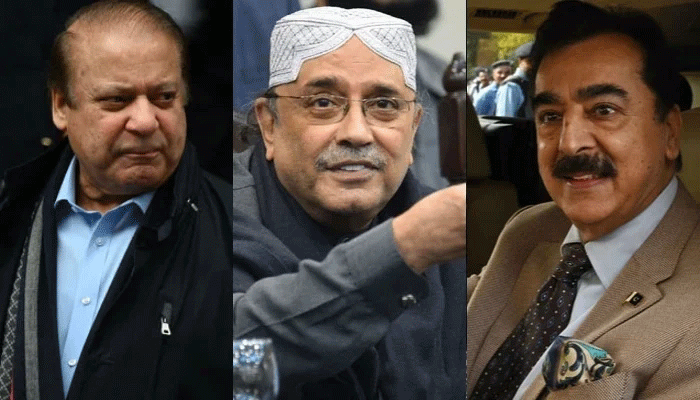The Supreme Court has issued a landmark verdict on a petition filed by Pakistan Tehreek-e-Insaf (PTI) Chairman Imran Khan. This verdict has led to the reopening of corruption cases against several prominent political figures, including former Prime Minister Nawaz Sharif, former President Asif Ali Zardari, and former Prime Minister Yousuf Raza Gillani.
The Supreme Court’s 2-1 decision has declared several amendments to the country’s accountability laws null and void. These amendments had previously resulted in the closure of graft cases against public officeholders during the Pakistan Democratic Movement (PDM-led) government.
The bench, comprising Chief Justice Umar Ata Bandial, Justice Mansoor Ali Shah, and Justice Ijazul Ahsan, ruled in favor of admitting Imran Khan’s petition. Notably, Justice Shah issued a dissenting note in the case.
The Supreme Court’s ruling mandates the reopening of all corruption cases involving amounts less than Rs500 million against politicians from various political parties and other public officeholders. The court deemed the previously implemented amendments to the National Accountability Bureau (NAB) law as unconstitutional and found that they had infringed upon the constitutional rights of the public.
As a result of this verdict, references against several influential political figures are expected to be reintroduced in the accountability courts. Specifically, cases related to the Toshakhana, involving Nawaz Sharif, Asif Ali Zardari, and Yousuf Raza Gillani, as well as the rental power reference against Raja Pervez Ashraf, have been reinstated. Additionally, cases against former Prime Minister Shaukat Aziz are set to reopen, with all of these cases scheduled to be heard in the accountability courts.
The amendments to the NAB law that have now been declared null and void included a reduction in the NAB chairman’s and prosecutor general’s terms from four years to three years, as well as the exclusion of all regulatory bodies from NAB’s jurisdiction. Furthermore, the amendments specified a three-year term for judges of accountability courts and imposed a one-year time limit for the resolution of cases.
Imran Khan’s legal challenge argued that these amendments were unconstitutional, citing violations of various articles within the Constitution and contravention of fundamental rights as outlined in Articles 9, 14, 19, 24, and 25.
This case was initially heard on July 19, 2022, following the formation of a special three-member bench. Both the federal government and the National Accountability Bureau (NAB) were included as parties in Imran Khan’s petition. The Supreme Court’s decision marks a significant development in Pakistan’s political and legal landscape, as it paves the way for the revival of corruption cases against high-profile individuals.


